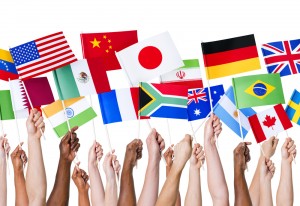Can Britain be said to have become dangerously diverse since it opened its shores to migrants, particularly from Commonwealth countries, following the end of the Second World War? That appears to be the message implicit in the former racial equality chief’s statements published in the Times on January 27th, which reported him as saying that, “Muslims are not like us”, and that the British public should, “accept that they will not integrate in the same way.” Trevor Phillips’, the former head of the racial equalities watchdog, remarks betray a painfully simplistic characterisation of a profoundly complex situation. They also raise thorny questions, including amongst others, whether foreign settlers in Britain pose an existential threat to British identity?
Pertinently, Mr. Phillips comments lead us to ask how “integration” and “multiculturalism” are to be defined. While having become household terms within the discourse on immigration, their household meanings reveal a mere fraction of their more nuanced denotations. Multiculturalism for example, at its simplest and most superficial level, pertains to a demographic condition. However, detailed empirical studies from legal and social psychology perspectives demonstrate that as a phenomenon multiculturalism has political, philosophical, anthropological and psychological dimensions. Favourable and unfavourable views on multiculturalism abound – yet it seems that the latter have been gathering pace over the past decade. Increasingly, othering discourse is creeping into the political rhetoric – with Prime Minister David Cameron making statements such as this: “We’ve…tolerated these segregated communities behaving in ways that run completely counter to our values.”
Thus, as Sarah Song, writing in the Stanford Encyclopaedia of Philosophy suggests, that, “the greatest challenge to multiculturalism may not be philosophical but political.” Indeed, in the unfolding migrant crisis more than ever today, there has been a retreat in those championing ‘multicultural justice’. Notably, among these is the former Archbishop of Canterbury, who in April 2014 castigated multiculturalism for bringing Sharia law and honour killings to British society. Paving the way through the maze of narratives surrounding multiculturalism – the communitarian and liberal egalitarian defences along with the political critiques thereof – psychologists at the London School of Economics suggest an alternative, organic approach to understanding multiculturalism. Caroline Howarth and Eleni Andreouli argue that instead of assuming or imposing one particular form of definition of multiculturalism, “successful social policy and public debate need to rest on a more in-depth understanding of how lay people construe and relate to multiculturalism in the context of their everyday lives.” What Howarth and Andreouli underscore is that in the lack of comprehending the big questions of multiculturalism and integration as experienced “on the ground” within the “lived realities of cultural diversity”, academic and political discourses are imperilled to become, “disconnected from real life experiences and actual intergroup relations.”
So, what are the lived realities of cultural diversity? As a Muslim migrant to this country and having married into a family of Muslim immigrants who have lived in Britain for the past 30 years, there exists a community of communities even within Muslims residing in Britain. There exist hundreds of Muslim migrants who have acculturated to this country, and who like my husband’s family, and myself strive to contribute positively to the diversity of British society. Having lived in a quintessentially English village in Surrey for the past three decades, the doors of my husband’s parental home have always been open to neighbours coming to sample Asian cuisine – and we regularly join hands in philanthropic pursuits, we come together to celebrate and better understand our differences through interfaith meetings and dialogues, we distribute and exchange sweets on religious festivals and we have over the course of the past seven years been offering free horse riding lessons at our riding school to families and children from neighbouring villages. I know scores of Muslim migrants who like my husband have either come to this country when they were babies or have been born and raised here – who have graduated from some of the most prestigious institutions in Britain and who are, within their respective professional domains, as either engineers, doctors, lawyers, journalists or other vocations – making meaningful contributions to British society. The British identity is concomitant with their thinking and way of living.
To be sure, the notion of integration is fraught with complexities and critics of multiculturalism argue that the façade of multiculturalism provides an adequate means of violating rights of vulnerable minorities within culturally diverse communities. Yes, we have problems such as female genital mutilation and these need to be addressed – but not through insular political jargon that will only serve to exacerbate these conditions and have a regressive effect on the actual victims. It is unfortunate that we champion a globalised world – yet continue to perpetuate insular foreign policies, entirely inward and nationalist in their outlook. We celebrate diversity and yet stifle the roots thereof by spreading isolating and demeaning rhetoric to the likes of Mr. Phillips and Mr. Cameron’s. After all, how else is diversity to be preserved but through the preservation of different cultures? A radical form of integration – which would entail largely or wholly embracing the dominant culture – would ironically stifle diversity by putting an end to norms and practices native to different cultures, that are not antithetical to the human spirit and that enrich the fabric of society. Caught in the middle of this merry-go-round of deepening far right politics and the corresponding rise of extremists, are peaceful, well integrated, law abiding, educated Muslims wanting simply to get on with their lives much like anyone else in this country. Until we rid ourselves of these hegemonic double standards, we will continue to demonise human diversity while letting the actual demons thrive.


Dangerously diverse? My opinion is rather no. I think this cultural diversity makes Britain powerful. This is what will keep it united. Even if a community explodes, the other ones will calm the things down.